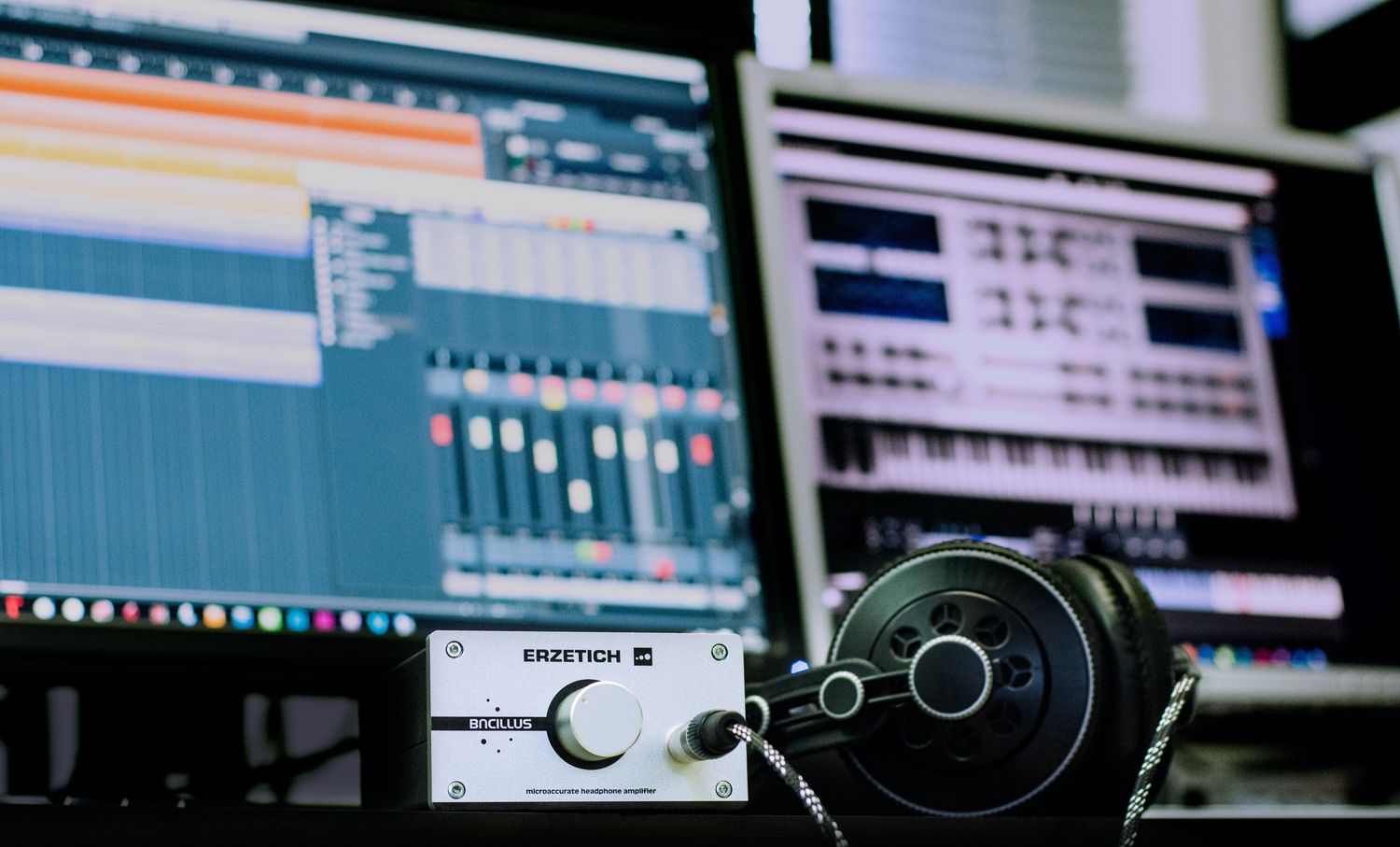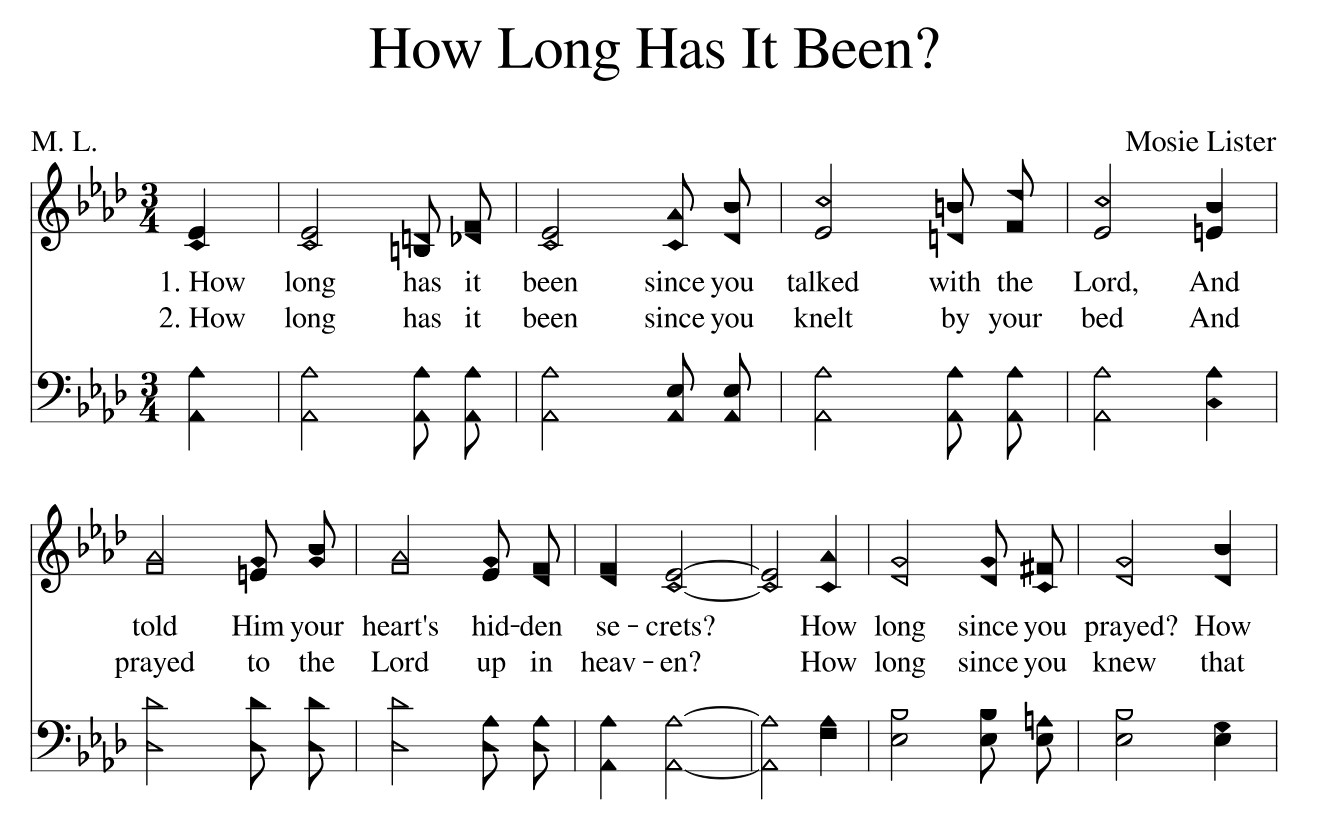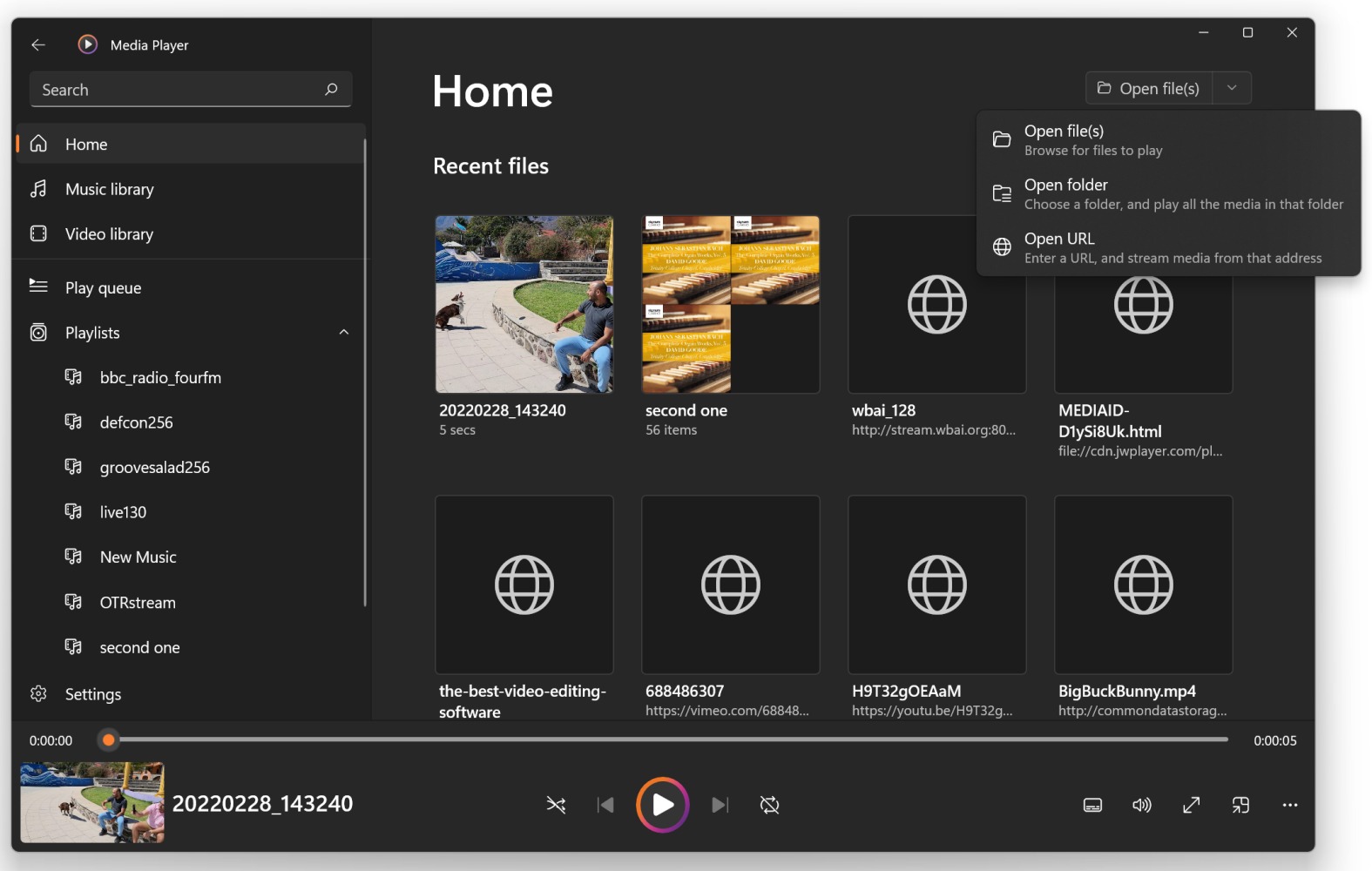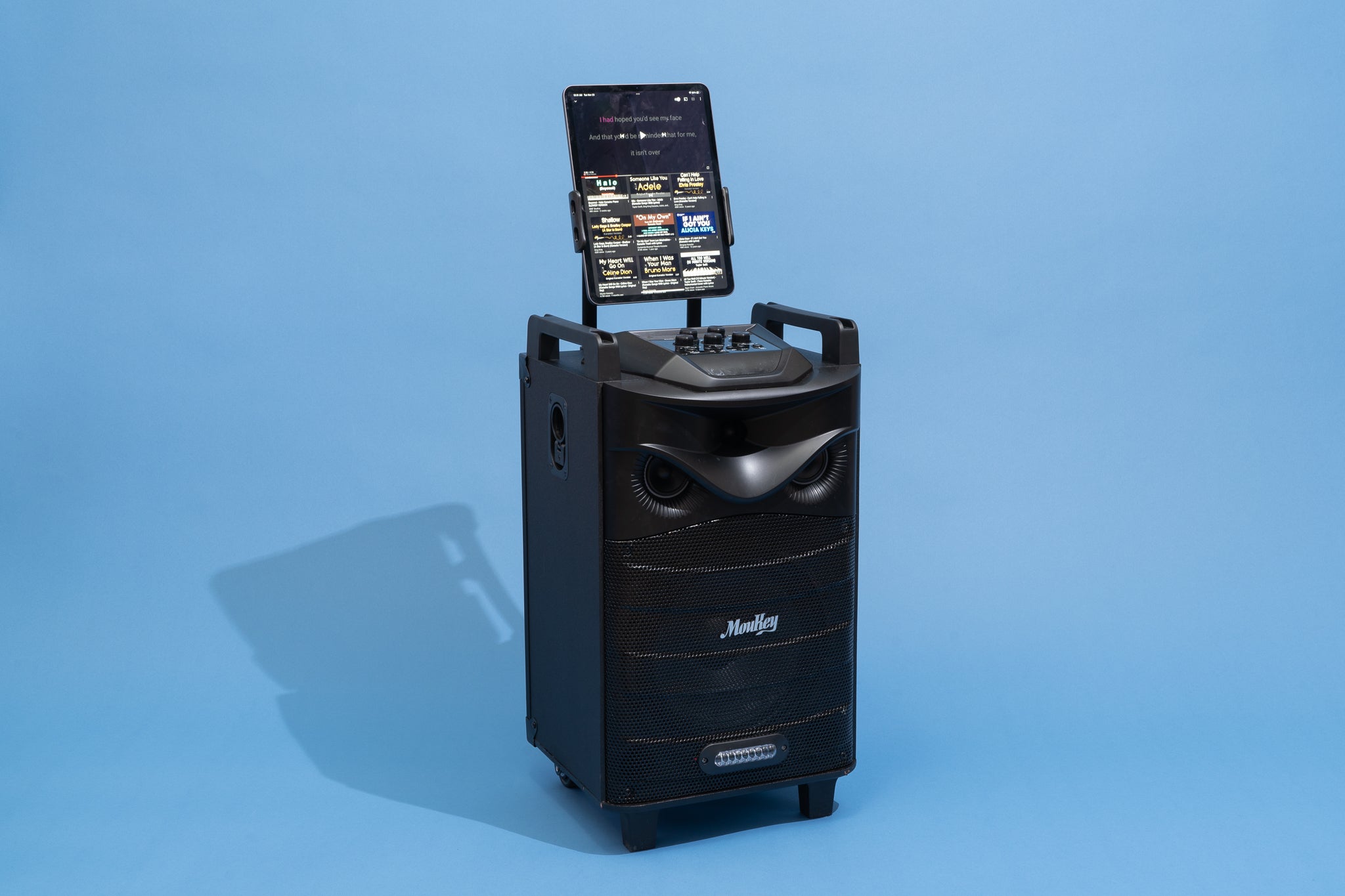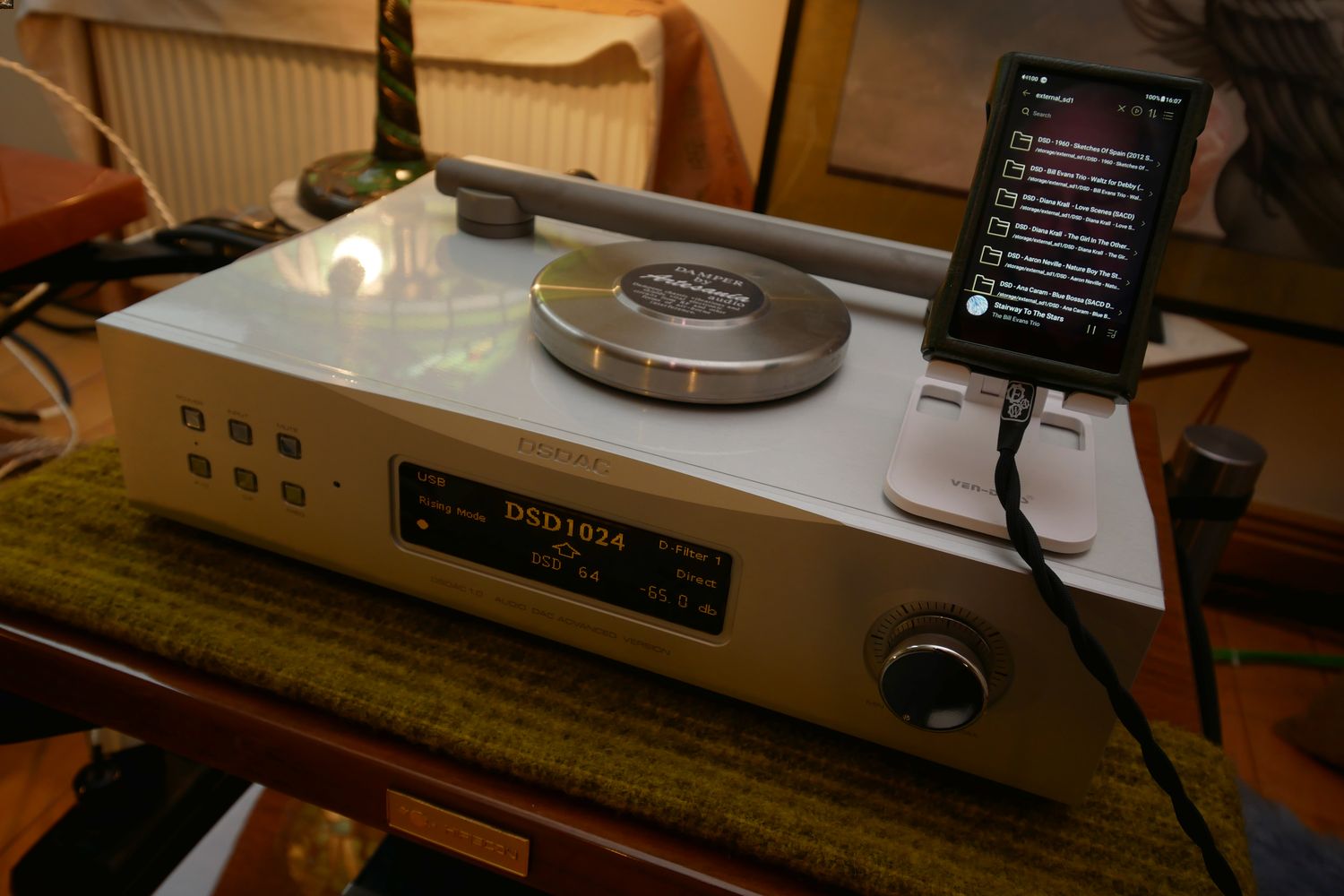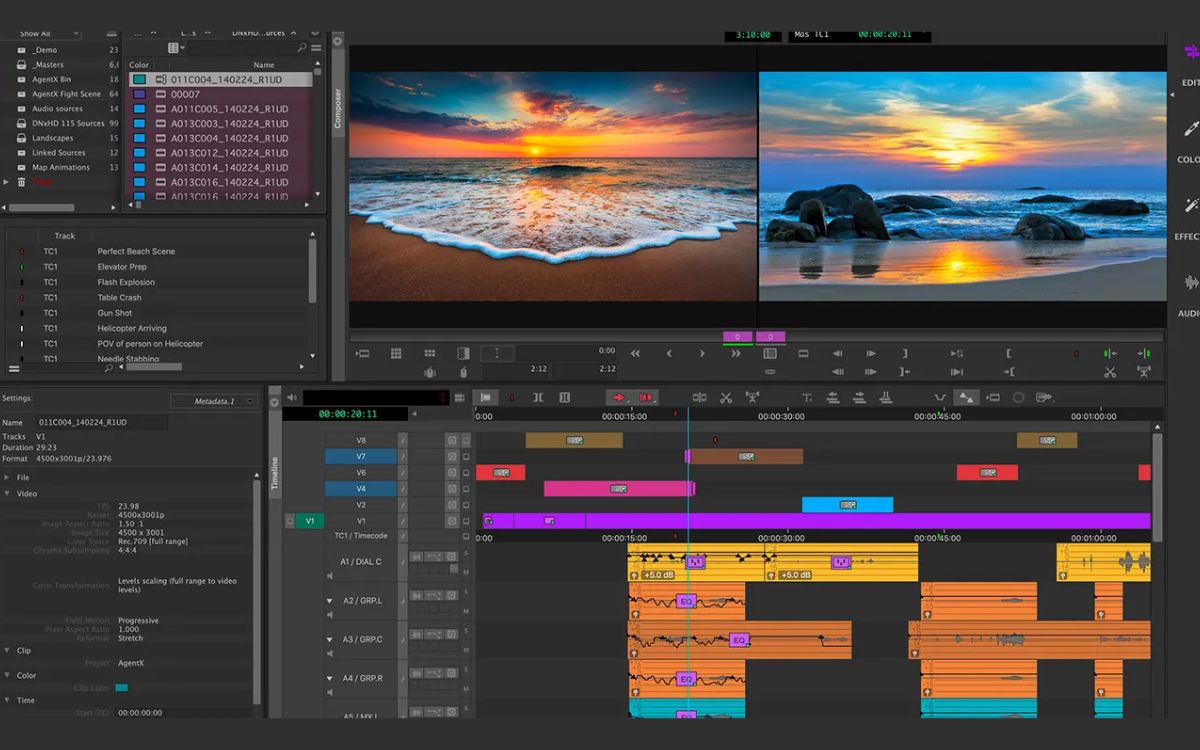Home>Production & Technology>Digital>How Digital Media Has Reshaped The Music Sector
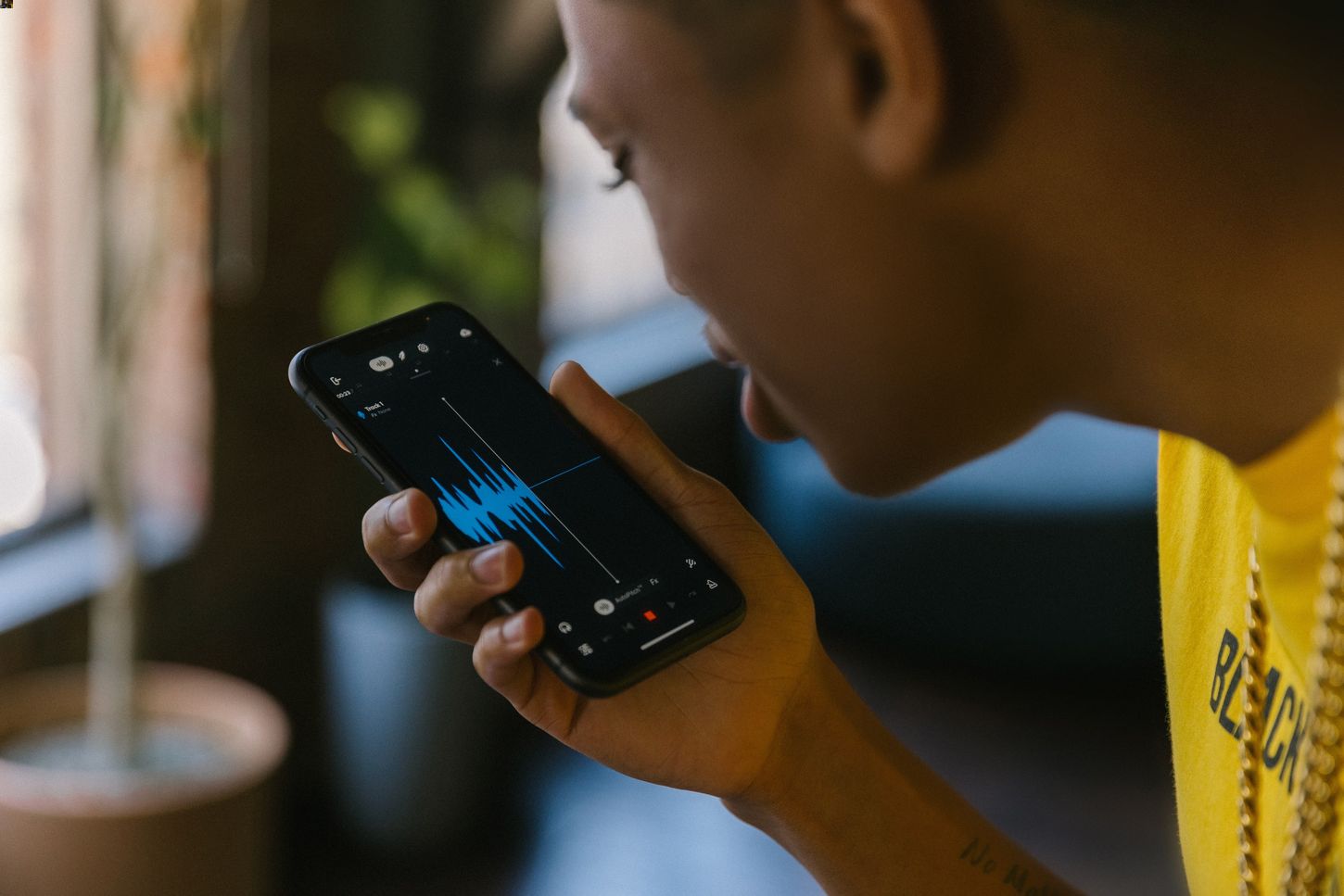

Digital
How Digital Media Has Reshaped The Music Sector
Published: March 9, 2024
Discover how digital media has revolutionized the music industry and transformed the way we consume and interact with music. Explore the impact of digital technology on the music sector.
(Many of the links in this article redirect to a specific reviewed product. Your purchase of these products through affiliate links helps to generate commission for AudioLover.com, at no extra cost. Learn more)
Table of Contents
Introduction
The music industry has undergone a remarkable transformation in recent years, largely due to the pervasive influence of digital media. This shift has revolutionized the way music is created, distributed, and consumed, presenting both challenges and opportunities for artists, record labels, and music enthusiasts alike. The advent of digital media has not only reshaped the landscape of the music sector but has also redefined the dynamics of artist-fan interactions and the overall business model of the industry.
The traditional methods of music distribution, such as physical albums and CDs, have gradually given way to digital platforms, with streaming services emerging as the dominant mode of music consumption. This shift has significantly altered the revenue streams for artists and record labels, prompting them to adapt to the new digital ecosystem. Moreover, the rise of social media has revolutionized the way music is promoted and shared, enabling artists to connect directly with their fan base and cultivate a more intimate and interactive relationship.
In this digital age, the music industry has witnessed a paradigm shift in marketing strategies, with a strong emphasis on digital marketing techniques to reach a global audience. Artists are leveraging social media platforms, content marketing, and influencer collaborations to amplify their reach and engage with fans on a more personal level. Furthermore, the integration of data and analytics has become instrumental in understanding consumer behavior, tailoring music recommendations, and optimizing marketing campaigns to resonate with target audiences.
The evolution of music consumption habits has been profound, with listeners now having access to an extensive catalog of music at their fingertips, thanks to streaming services and digital downloads. This accessibility has not only diversified the music preferences of audiences but has also influenced the way artists create and release their music, considering the evolving patterns of consumption.
Looking ahead, the future of the music industry is poised for further transformation, driven by technological advancements, evolving consumer behaviors, and the continuous innovation in digital platforms. As the industry continues to adapt to the digital landscape, it is essential for stakeholders to embrace these changes and harness the power of digital media to navigate the ever-evolving music ecosystem.
The impact of digital media on the music sector is undeniable, and its influence will continue to shape the industry's trajectory, presenting new avenues for creativity, connectivity, and commercial success.
The Impact of Streaming Services
The advent of streaming services has revolutionized the music industry, fundamentally altering the way music is consumed and distributed. This transformative shift has redefined the revenue model for artists and record labels, presenting both challenges and opportunities within the digital landscape.
Streaming services, such as Spotify, Apple Music, and Amazon Music, have democratized access to music, offering listeners a vast library of songs at their fingertips. This accessibility has significantly reduced the reliance on physical music formats, such as CDs and vinyl records, and has reshaped consumer behavior by fostering a culture of on-demand music consumption.
From an economic standpoint, the rise of streaming services has restructured the revenue streams for artists and record labels. While the traditional model relied heavily on album sales and physical distribution, the streaming era is characterized by a shift towards a more fragmented revenue structure, where artists earn royalties based on the number of streams their music accumulates. This transition has prompted industry-wide discussions on fair compensation for artists, as the per-stream payout model has raised concerns about the sustainability of artists' income in the streaming ecosystem.
Moreover, the rise of curated playlists and algorithm-driven recommendations on streaming platforms has transformed the dynamics of music discovery. This has led to a diversification of music consumption habits, with listeners exploring a broader range of genres and artists, transcending geographical boundaries and cultural barriers.
The impact of streaming services extends beyond consumption patterns, influencing the creative process of artists and the marketing strategies employed by record labels. Artists are now compelled to craft music that resonates with the streaming audience, considering factors such as playlist inclusion and algorithmic discoverability. Additionally, record labels are recalibrating their promotional tactics to optimize music releases for streaming platforms, leveraging data-driven insights to maximize visibility and engagement.
As the music industry continues to navigate the implications of streaming services, it is evident that this digital paradigm has redefined the relationship between artists, fans, and the commercial ecosystem. The democratization of music access, the reconfiguration of revenue models, and the evolution of music discovery are emblematic of the profound impact that streaming services have had on reshaping the music sector, setting the stage for a dynamic and ever-evolving industry landscape.
Social Media and Music Promotion
The emergence of social media has revolutionized the landscape of music promotion, offering artists unprecedented opportunities to connect with their audience, cultivate a loyal fan base, and amplify their reach on a global scale. Platforms such as Instagram, Facebook, Twitter, and TikTok have become pivotal tools for artists and record labels to engage with fans, build brand identity, and drive music discovery in the digital age.
Social media platforms serve as dynamic channels for artists to share their creative journey, behind-the-scenes insights, and personal anecdotes, fostering a sense of intimacy and authenticity with their audience. Through visually compelling content, live streams, and interactive Q&A sessions, artists can forge genuine connections with fans, transcending the traditional barriers of distance and accessibility. This direct engagement not only humanizes the artist's persona but also creates a compelling narrative that resonates with audiences, fostering a deeper emotional connection.
Moreover, social media has redefined the dynamics of music promotion by empowering artists to leverage user-generated content and viral trends to amplify their visibility. The viral nature of platforms like TikTok has propelled songs to stratospheric levels of popularity, underscoring the transformative impact of social media on music discovery and consumption. By harnessing the power of user-generated challenges, dance trends, and creative collaborations, artists can organically integrate their music into the fabric of social media culture, catalyzing widespread attention and engagement.
In addition, social media platforms serve as a catalyst for collaborative ventures between artists and influencers, enabling strategic partnerships that extend the reach of music promotion. By collaborating with influencers and content creators, artists can tap into niche communities, leverage their influence, and expand their fan base. This symbiotic relationship not only amplifies the artist's visibility but also fosters authentic endorsements and endorsements, driving organic engagement and fostering a sense of community around the artist's music.
Furthermore, the data-driven nature of social media analytics empowers artists and record labels to refine their promotional strategies, optimize content performance, and tailor their messaging to resonate with specific demographics. By harnessing insights on audience engagement, geographic distribution, and content preferences, artists can fine-tune their promotional campaigns, ensuring that their music reaches the right audience at the right time, thereby maximizing impact and fostering sustained fan engagement.
In essence, social media has emerged as a cornerstone of modern music promotion, offering artists a multifaceted platform to cultivate their brand, engage with fans, and propel their music into the cultural zeitgeist. The symbiotic relationship between social media and music promotion underscores the transformative power of digital connectivity, shaping the dynamics of artist-fan interactions and redefining the promotional playbook for the contemporary music industry.
Digital Marketing Strategies for Artists
In the digital era, artists are leveraging a diverse array of digital marketing strategies to amplify their visibility, engage with audiences, and cultivate a robust online presence. These strategies encompass a multifaceted approach that harnesses the power of digital platforms, data-driven insights, and compelling storytelling to resonate with fans and drive commercial success.
Content Marketing and Storytelling
Artists are embracing content marketing as a cornerstone of their digital strategy, creating compelling narratives that transcend their music. Through visually captivating content, such as music videos, behind-the-scenes footage, and personal vlogs, artists can forge a deeper emotional connection with their audience, offering a glimpse into their creative process and personal journey. By weaving storytelling into their digital presence, artists can humanize their brand, fostering authenticity and relatability that resonates with fans on a profound level.
Social Media Engagement and Community Building
Social media platforms serve as dynamic hubs for artists to engage with their fan base, fostering a sense of community and interactivity. By leveraging platforms such as Instagram, Twitter, and Facebook, artists can initiate conversations, respond to fan inquiries, and share exclusive content, nurturing a loyal and engaged fan community. This direct engagement not only humanizes the artist's persona but also fosters a sense of belonging and inclusivity, strengthening the artist-fan bond and driving sustained fan loyalty.
Influencer Collaborations and Partnerships
Strategic collaborations with influencers and content creators have emerged as a potent digital marketing strategy for artists to expand their reach and tap into niche audiences. By partnering with influencers whose values align with their brand, artists can leverage their influence to amplify their music, drive engagement, and access new pockets of fans. These collaborations facilitate organic endorsements and authentic storytelling, enabling artists to organically integrate their music into diverse online communities, thereby broadening their reach and fostering genuine connections.
Data-Driven Audience Insights and Targeted Campaigns
The integration of data and analytics has empowered artists to glean actionable insights into their audience demographics, content preferences, and engagement patterns. By harnessing these insights, artists can tailor their marketing campaigns to resonate with specific audience segments, optimizing their messaging and content distribution. This data-driven approach enables artists to refine their digital strategy, ensuring that their music reaches the right audience at the right time, fostering meaningful connections and driving sustained fan engagement.
Email Marketing and Direct Fan Communication
Email marketing remains a potent tool for artists to directly communicate with their fan base, offering a personalized channel for announcements, exclusive content releases, and tour updates. By curating tailored email campaigns, artists can nurture a direct line of communication with their fans, fostering a sense of exclusivity and intimacy. This direct engagement not only cultivates a dedicated fan base but also serves as a platform for driving ticket sales, merchandise purchases, and music streaming, thereby bolstering the artist's commercial endeavors.
In essence, digital marketing strategies have become integral to the success of artists in the modern music landscape, offering a diverse toolkit to amplify their visibility, engage with fans, and drive commercial success. By harnessing the power of content marketing, social media engagement, influencer collaborations, data-driven insights, and direct fan communication, artists can navigate the digital ecosystem, forging meaningful connections and propelling their music into the cultural zeitgeist.
The Role of Data and Analytics
In the digital age, data and analytics have emerged as indispensable tools for artists and record labels to navigate the intricacies of the music industry, offering actionable insights that inform strategic decision-making, optimize marketing campaigns, and drive sustained fan engagement. The integration of data and analytics has revolutionized the way music is created, promoted, and consumed, empowering stakeholders to glean profound insights into consumer behavior, content preferences, and market trends.
Data and analytics play a pivotal role in understanding audience demographics, consumption patterns, and content engagement, enabling artists to tailor their music releases and promotional strategies to resonate with specific audience segments. By harnessing data-driven insights, artists can refine their creative direction, identify emerging trends, and anticipate audience preferences, thereby shaping their music to align with the evolving landscape of consumer demand.
Moreover, data and analytics serve as a compass for targeted marketing campaigns, allowing artists to optimize their promotional efforts and content distribution. By leveraging insights on audience engagement, geographic distribution, and platform-specific behaviors, artists can fine-tune their marketing strategies, ensuring that their music reaches the right audience at the right time. This targeted approach not only maximizes the impact of promotional initiatives but also fosters meaningful connections with fans, driving sustained engagement and brand loyalty.
Furthermore, data-driven insights are instrumental in measuring the efficacy of marketing campaigns, content performance, and audience response, offering a feedback loop that informs iterative improvements and strategic refinements. By analyzing key performance indicators, such as streaming metrics, social media engagement, and content interaction, artists can gauge the resonance of their music and promotional content, enabling them to adapt their strategies in real time, optimize their outreach, and amplify their impact.
In essence, the role of data and analytics in the music industry transcends mere statistical analysis; it serves as a catalyst for informed decision-making, creative refinement, and strategic optimization. By harnessing the power of data and analytics, artists can navigate the digital landscape with precision, ensuring that their music resonates with audiences, drives commercial success, and cultivates a lasting impact in the ever-evolving music ecosystem.
Changes in Music Consumption Habits
The digital revolution has precipitated a seismic shift in the way audiences consume music, ushering in a new era of unprecedented accessibility, diversity, and convenience. The advent of streaming services and digital downloads has redefined the traditional paradigms of music consumption, catalyzing a profound transformation in the habits and preferences of listeners worldwide.
One of the most notable changes in music consumption habits is the transition from physical formats, such as CDs and vinyl records, to digital platforms. The convenience of streaming services, offering an extensive catalog of music accessible on-demand, has led to a significant decline in physical album sales. This shift reflects a fundamental change in consumer behavior, as listeners increasingly gravitate towards the convenience and portability of digital music consumption.
Furthermore, the rise of curated playlists and algorithm-driven recommendations on streaming platforms has revolutionized the dynamics of music discovery. Listeners are now exposed to a diverse array of genres, artists, and musical styles, transcending geographical boundaries and cultural barriers. This has led to a democratization of music preferences, with audiences embracing a more eclectic and inclusive approach to their listening habits.
The concept of music ownership has also undergone a paradigm shift, with the emphasis shifting from owning physical copies of albums to accessing music through subscription-based streaming services. This evolution reflects a broader trend towards access over ownership, as listeners prioritize the flexibility and variety offered by streaming platforms, where they can explore a vast library of music without the constraints of physical storage or ownership.
Moreover, the integration of social sharing and collaborative playlists on streaming platforms has transformed music consumption into a communal experience. Listeners can curate and share playlists, discover new music through social recommendations, and engage in collaborative listening experiences, fostering a sense of community and interconnectedness within the digital music landscape.
The proliferation of mobile devices and smart speakers has further catalyzed the ubiquity of music consumption, enabling listeners to enjoy music anytime, anywhere. This seamless integration of music into everyday life has redefined the role of music in shaping personal experiences, from workouts and commutes to social gatherings and moments of solitude.
In essence, the changes in music consumption habits underscore the profound impact of digital media on reshaping the listening behaviors of audiences. The transition towards digital platforms, the diversification of music preferences, the shift from ownership to access, and the communal nature of music consumption exemplify the transformative influence of digital media on the evolving landscape of music consumption habits.
The Future of the Music Industry
The future of the music industry is poised for a dynamic and transformative trajectory, driven by technological innovation, evolving consumer behaviors, and the continuous evolution of digital platforms. As the industry continues to adapt to the digital landscape, it is essential for stakeholders to embrace these changes and harness the power of digital media to navigate the ever-evolving music ecosystem.
One of the defining factors shaping the future of the music industry is the ongoing convergence of music and technology. Advancements in artificial intelligence, virtual reality, and immersive audio experiences are redefining the creative possibilities for artists, offering innovative avenues for music creation and consumption. From AI-generated music compositions to interactive virtual concerts, the fusion of music and technology is poised to revolutionize the artistic landscape, offering artists unprecedented tools to engage with audiences and craft immersive sonic experiences.
Furthermore, the global interconnectedness facilitated by digital platforms is reshaping the dynamics of music distribution and international collaboration. Artists now have the opportunity to transcend geographical boundaries, connect with diverse audiences, and collaborate with musicians from across the globe, fostering a rich tapestry of cross-cultural influences and creative exchange. This global connectivity not only amplifies the reach of artists but also enriches the musical landscape with a diverse array of sounds, genres, and perspectives.
The future of the music industry also hinges on the evolution of business models and revenue streams. As the industry grapples with the implications of streaming services and digital downloads, stakeholders are exploring innovative monetization strategies, such as non-fungible tokens (NFTs), blockchain-based royalties, and decentralized music marketplaces. These emerging models offer artists and creators alternative avenues to monetize their work, establish direct relationships with fans, and redefine the value exchange within the music ecosystem.
Moreover, the intersection of music and immersive experiences, such as augmented reality (AR) and spatial audio, is poised to revolutionize live performances and fan engagement. From interactive AR-enhanced music videos to spatial audio concerts, the integration of immersive technologies offers audiences a multi-sensory journey, blurring the boundaries between physical and digital realms, and redefining the live music experience.
As the music industry hurtles towards the future, it is imperative for artists, record labels, and industry stakeholders to embrace innovation, adapt to evolving consumer behaviors, and leverage the transformative potential of digital media. By embracing technological advancements, fostering global connectivity, exploring new revenue models, and embracing immersive experiences, the music industry is poised to embark on a dynamic and boundary-pushing journey, shaping the cultural zeitgeist and redefining the artistic landscape for generations to come.

